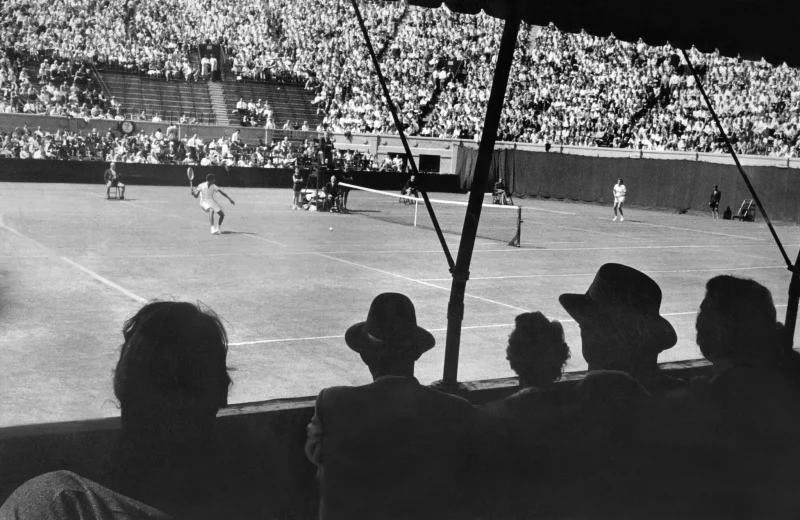Before Serena, There Was Althea
Share
Explore Our Galleries
Breaking News!
Today's news and culture by Black and other reporters in the Black and mainstream media.
Ways to Support ABHM?
By Sally H. Jacobs, New York Times
Althea Gibson was the first Black player to win Wimbledon. Soon, the block in Harlem where she grew up will bear her name.

On a sweltering day in the summer of 1957, a slender young woman from Harlem became the first Black player to win the hallowed Wimbledon tennis tournament in England. After receiving the Venus Rosewater Dish from Queen Elizabeth II, Althea Gibson, 29, attended the Wimbledon Ball that evening, spinning around the dance floor in the arms of the Duke of Devonshire.
The celebration continued in Manhattan, where Ms. Gibson was feted with the first ticker-tape parade up Broadway to honor a woman of color.
But the following day, the illusion that the new queen of tennis had ushered in a chapter of racial equity shattered. When Ms. Gibson arrived in a Chicago suburb for her next tournament, she was refused a room at all of the upscale hotels, one of which also rejected a request to book a luncheon in her honor.
“Midnight had come for Cinderella, not in some small Mississippi town, but in liberal Greater Chicago,” a reporter wrote in Saturday Review magazine.
Back in London, the fairy tale disappeared overnight. Lew Hoad, the Wimbledon men’s singles champion who had danced with Ms. Gibson at the ball, awoke the next morning to a pile of angry messages, according to his widow, Jenny Hoad. “There were just hundreds of letters from people who accused him of breaking the rules, saying, ‘You have no right to dance with colored people,’” she recalled. “We didn’t even read most of them.”
But Ms. Gibson had no intention of letting the discrimination she had battled for most of her life stop her rise and imminent reign. Two months later, she became the first Black tennis player to win the tournament now known as the U.S. Open, and by the end of the year, she had become the first Black woman to be ranked No. 1 in the world. Her fortitude and perseverance paved the way for the Black tennis players to come after her, like Arthur Ashe, Zina Garrison and the Williams sisters.
Learn more about Gibson’s anti-racist stance.
Williams recently announced her retirement, which has inspired praise for the athlete.
Stay up to date with breaking Black news.









Comments Are Welcome
Note: We moderate submissions in order to create a space for meaningful dialogue, a space where museum visitors – adults and youth –– can exchange informed, thoughtful, and relevant comments that add value to our exhibits.
Racial slurs, personal attacks, obscenity, profanity, and SHOUTING do not meet the above standard. Such comments are posted in the exhibit Hateful Speech. Commercial promotions, impersonations, and incoherent comments likewise fail to meet our goals, so will not be posted. Submissions longer than 120 words will be shortened.
See our full Comments Policy here.